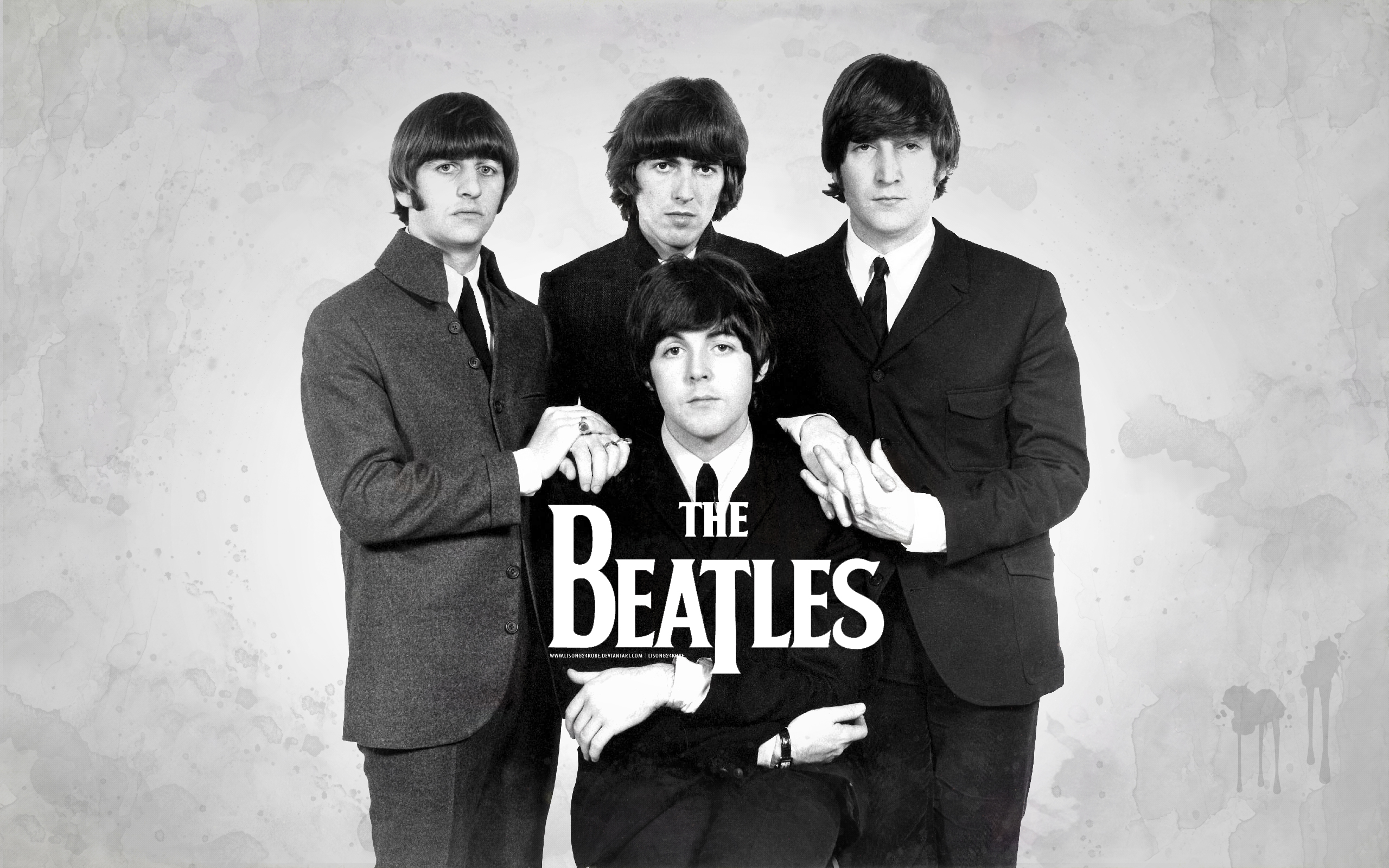
The Beatles
History
The Start
The Beatles were an English rock band, formed in Liverpool in 1960. With members John Lennon, Paul McCartney, George Harrison and Ringo Starr, they became widely regarded as the foremost and most influential act of the rock era. The Beatles built their reputation playing clubs in Liverpool and Hamburg over a three-year period from 1960 where the core of Lennon, McCartney and Harrison went through a succession of drummers, before eventually asking Starr to join them. They acquired the nickname "the Fab Four" as Beatlemania grew in Britain the next year, and by early 1964 became international stars, leading the "British Invasion" of the United States pop market. From 1965 onwards, the Beatles produced increasingly innovative recordings, including the albums Rubber Soul (1965), Revolver (1966), Sgt. Pepper's Lonely Hearts Club Band (1967), The Beatles (commonly known as the White Album, 1968) and Abbey Road (1969). According to the RIAA, the Beatles are the best-selling music artists in the United States, with 178 million certified units. They have had more number-one albums on the British charts and sold more singles in the UK than any other act. In 2008, the group topped Billboard magazine's list of the all-time most successful "Hot 100" artists; as of 2016, they hold the record for most number-one hits on the Hot 100 chart with twenty. They have received ten Grammy Awards, an Academy Award for Best Original Song Score and fifteen Ivor Novello Awards. Collectively included in Time magazine's compilation of the twentieth century's 100 most influential people, they are the best-selling band in history, with estimated sales of over 600 million records worldwide. The group was inducted into the Rock and Roll Hall of Fame in 1988, and all four were inducted individually from 1994 to 2015.The Break Up
New strains developed between the band members regarding the appointment of a financial adviser. Lennon, Harrison and Starr favoured Allen Klein, who had managed the Rolling Stones and Sam Cooke; McCartney wanted Lee and John Eastman father and brother, respectively, of Linda Eastman,whom McCartney married on 12 March. Agreement could not be reached, so both Klein and the Eastmans were temporarily appointed: Klein as the Beatles' business manager and the Eastmans as their lawyers. Further conflict ensued, however, and financial opportunities were lost. On 8 May, Klein was named sole manager of the band, the Eastmans having previously been dismissed as the Beatles' attorneys. McCartney refused to sign the management contract with Klein, but he was out-voted by the other Beatles. Martin stated that he was surprised when McCartney asked him to produce another album, as the Get Back sessions had been "a miserable experience" and he had "thought it was the end of the road for all of us". The primary recording sessions for Abbey Road began on 2 July 1969. Lennon, who rejected Martin's proposed format of a "continuously moving piece of music", wanted his and McCartney's songs to occupy separate sides of the album. The eventual format, with individually composed songs on the first side and the second consisting largely of a medley, was McCartney's suggested compromise. On 4 July, the first solo single by a Beatle was released: Lennon's "Give Peace a Chance", credited to the Plastic Ono Band. The completion and mixing of "I Want You (She's So Heavy)" on 20 August 1969 was the last occasion on which all four Beatles were together in the same studio. Lennon announced his departure to the rest of the group on 20 September, but agreed to withhold a public announcement to avoid undermining sales of the forthcoming album. Although they were broken up, all four went on to have successful musical careers.The Legacy
Today only 2, McCartney and Starr remain musically active and alive with Lennon bening shot and killed in December 1980, and Harrison dying of lung cancer in November 2001. Former Rolling Stone associate editor Robert Greenfield compared the Beatles to Picasso, as artists who broke through the constraints of their time period to come up with something that was unique and original in the form of popular music, no one will ever be more revolutionary, more creative and more distinctive. According to Gould, the Beatles changed the way people listened to popular music and experienced its role in their lives. From what began as the Beatlemania fad, the group's popularity grew into what was seen as an embodiment of sociocultural movements of the decade. As icons of the 1960s counterculture, Gould continues, they became a catalyst for bohemianism and activism in various social and political arenas, fuelling movements such as women's liberation, gay liberation and environmentalism.Band Albums